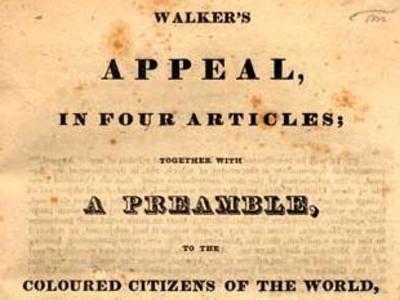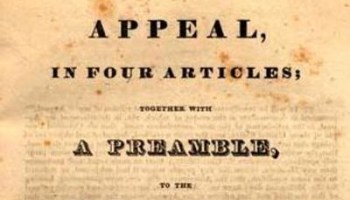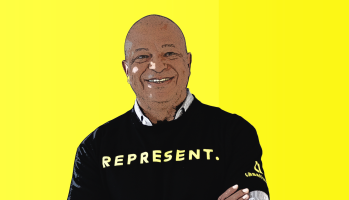
In the 19th Century, slavery and racism was still entrenched in the U.S., but opposition was growing. David Walker, an outspoken abolitionist, released a pamphlet calling for the end of slavery by any means necessary and made himself one of the most wanted and feared men of his time.
Born in Wilmington, N.C. in 1796 or 1797 to a slave father and free mother, Walker witnessed the horrors of slavery up close although he was privileged to be born free. Those early experiences shaped Walker’s world view as he traveled, eventually settling in Boston in 1825.
Even in the North, Walker witnessed abject discrimination against Blacks and the inequality infuriated him. He became a successful used clothing store owner but saw that white Bostonians still treated Black residents as second-class citizens. Walker began writing and working for the Black-owned newspaper, Freedom’s Journal, becoming a vocal opponent of slavery.
In 1829, he released the pamphlet, “Walker’s Appeal, in Four Articles; Together with a Preamble, to the Coloured Citizens of the World, but in Particular, and Very Expressly, to Those of the United States of America, Written in Boston, State of Massachusetts, September 28, 1829.”
The pamphlet drew criticism from abolitionists in the North because of its call for violence. At one point, observers considered Walker’s pamphlet as the most notorious document in the country. His radical and Black nationalist ideals were even criticized by free Blacks who thought the pamphlet would put them under higher scrutiny.
Southern officials called for Walker’s capture or death, offering large cash awards for either outcome. It was rumored that Walker would sew copies of the pamphlets into clothes he sold to be shipped to the southern regions that still embraced slavery. In the summer of 1830, Walker was found dead and many thought he had been poisoned. However, it’s more likely he died of tuberculosis, as did his young daughter. He was 33.
Walker’s boldness served as an inspiration to Frederick Douglass, W.E.D. Du Bois, Rev. Martin Luther King Jr. and many other historic civil rights figures. His words also shifted the narrative of abolitionists in the North and across the nation,inspiring more definitive action against the scourge of slavery.
Like BlackAmericaWeb.com on Facebook. Follow us on Twitter.
Little Known Black History Fact: David Walker was originally published on blackamericaweb.com















